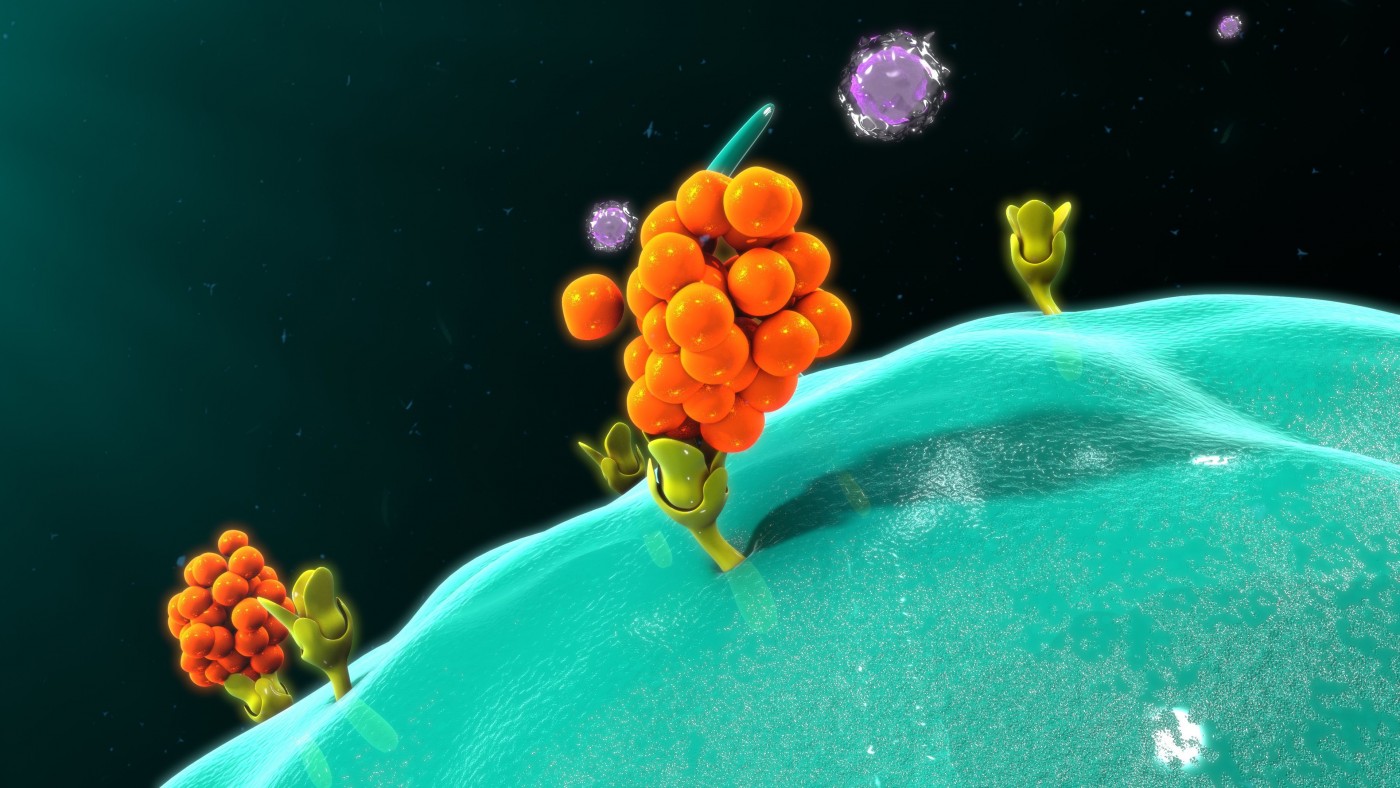Researchers Reveal Mechanism of Action for Tecfidera, an MS Therapy
Written by |

Researchers found the molecular target of the multiple sclerosis (MS)-approved drug Tecfidera, (dimethyl fumarate or DMF), unveiling the mechanism associated with the drug’s anti-inflammatory action. The study, “Dimethyl fumarate blocks pro-inflammatory cytokine production via inhibition of TLR induced M1 and K63 ubiquitin chain formation,” was published in the journal Scientific Reports.
Tecfidera is an approved treatment for MS, and for psoriasis, because of its anti-inflammatory properties, but how it works was not well understood.
Previous studies have shown that Tecfidera blocks cytokine induction. Cyctokine are small signaling molecules that mediate cell-to-cell communications in immune responses, and stimulate the movement toward sites of inflammation, infection and trauma of certain immune system cells, including macrophages — a type of white blood cell that engulfs and digests cellular debris, foreign substances, microbes, and cancer cells. Macrophages, as such, are a vital component of the immune system. (Likewise, cytokine induction is a necessary mechanism in the body. But in autoimmune diseases, the immune system is exacerbated and there is a damaging surplus of cytokine production. Cytokine induction, in other words, needs to be tightly regulated.)
Researchers investigated the mechanism of action of Tecfidera, and reported that it has anti-oxidant properties by activating a protein called Nrf2; however, to block cytokine induction, Tecfidera uses other mechanisms. The team found that the drug is able to inhibit several pathways linked to a set of proteins called toll-like receptors (TLRs), which play a key role in innate immune system responses.
In addition, the researchers found that Tecfidera can block a specific group of enzymes called the ubiquitin-conjugating enzymes (E2 enzymes). Ubiquitin is a small regulatory protein found in almost all tissues. The addition of ubiquitins to a certain protein is a cellular mechanism to regulate protein expression and location; the ubiquitination process (addition of ubiquitins) can affect a protein’s degradation, change its cellular location, affect its activity, and promote or prevent protein interactions.
The team also discovered two key pathways in human immune system responses, the NFκB and ERK1/2 signaling (downstream of TLR), that are inhibited by Tecfidera and correlate with a loss of pro-inflammatory cytokine production.
“Taken together our results, along with those of others, would indicate that DMF has complex effects in cells and is unlikely to act via a single target. Instead it is likely that the overall therapeutic effects of DMF in MS or psoriasis are due to the ability of DMF to directly modify the function of a number of cellular proteins,” the team wrote.
Based on the results, the researchers suggest that inhibiting the ubiquitin-conjugating enzymes is a viable therapeutic strategy for autoimmune diseases, such as MS.


